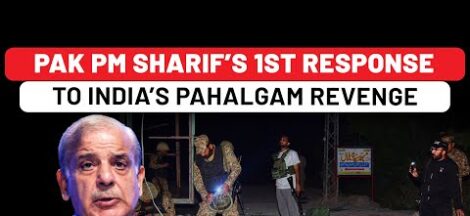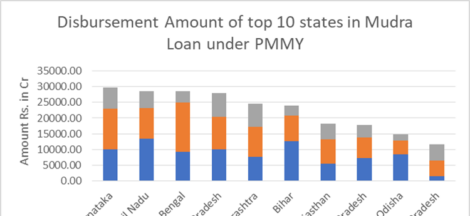During the peak of election campaigning, Prime Minister Narendra Modi’s remarks about Mahatma Gandhi created quite a buzz, with many criticizing his take that nobody in the world knew about Gandhi until the Richard Attenborough-directed film Gandhi came out in 1982. Many people think Gandhi is well-known and deeply revered across the world so, PM’s comments were off the mark.
However, Modi’s narrative received support from three-time Grammy winner musician Ricky Kej who said in a lengthy post that Mahatma Gandhi was indeed forgotten in the West before the 1982 Richard Attenborough film. He said he could say this from his personal experience. Kej is an American music composer and environmentalist of Indian descent, born in 1981. Kej himself might have known about Mahatma Gandhi through the film in which Ben Kingsley played the role of Gandhi.
There are various aspects of Mahatma Gandhi’s personality, each worth exploring and knowing about in their own right. Gandhi as a political leader during the British rule in India is often discussed and examined in public discourses. Modi’s reference to Gandhi falls into this category.
While a lot of people may know about Gandhi in India and abroad, what do they exactly know about him? Gandhi went to jail several times both and he spent only about six years in jail, not a significant duration compared to other freedom fighters.
Gandhi launched only four movements: Champaran Satyagraha (1917), Non-Cooperation Movement (1920), Civil Disobedience Movement (1930), and Quit India Movement (1942). If looked closely, these movements were mere opposition to the British rule. These were not a challenge to the authority or declaration of an all-out war. This astuteness is what makes him great strategist.
He was acutely aware of the mortal and brittle nature of life. For him, fighting for freedom was not worth losing one’s life. He will not say this as clearly though.
Gandhi understood that the real meaning of freedom lay in economic liberty, being healthy, in bring free from hatred, and in being knowledgeable and compassionate. The Indian society was under shackles even without the Britishers. The widespread untouchability, the erosion of the village economy, the loss of skills, etc. were as significant challenges as the British rule. So, while he was opposing the British rule, he was fighting the evils in society.
Those who claim to know Gandhi, do they also know that he was an editor and journalist more than anything else? He founded the Indian Opinion in 1903 and continued to edit it until 1914 before he returned to India. Indian Opinion continued until 1961 and after a gap of 40 years it was again revived in 2000.
In India, he started Harijan in 1933 and edited it until he died in 1948. He regularly wrote articles on non-political issues, focusing on reforms that Indian villages and Indian society needed. The name Harijan was not targeted at the British. It was targeted at the Indians and the many ways they can be a complete nuisance.
During these years, he would often take tours of villages and inspect the toilets of the rich people. He was utterly dismayed at the poor cleanliness and hygiene standards. He found that Indian villagers were grappling with extreme jealousy and animosity towards each other, helping the number of untouchables keep growing.
If you have read Mahatma Gandhi’s reportages, you would know the real man behind the façade of a dhoti, lathi, and specs. He was a keen observer, a hardworking researcher, a writer who weighed every word before writing, a man who carried the dreams of millions in his heart. Honest, compassionate, and praying! He did not need to fight the British; the British saw the fighter in him. They knew he was original and he couldn’t be defeated.
If Mahatma Gandhi is forgotten, let’s not shed teams for him. He didn’t live to be remembered forever. He stood his ground during those tough times so that all others could enjoy freedom.
People forgetting the heroes of the past is normal. We have forgotten hundreds like Gandhi – Vinoba Bhave and Aurobindo. Jawaharlal Nehru and Muhammad Ali chose to become controversial and denounced but did not back out from taking responsibilities.
However, what makes forgetting a poignant story is the fact that living heroes have to prove themselves again and again. For example, Rahul Gandhi has to win back the illustrious lineage for the people of this generation to know who he actually belongs to.
This generation needs to be told that the greatness of Sachin lay in performing in tough and tense situations. The greatness of Dhoni lay in his selfish belief that he alone could win the match for the team, each time! From being resilient to being selfish, greatness has to be proved time and again. A society progresses when it recognizes and trusts contemporary inspirations and heroes. (IPA Service)



